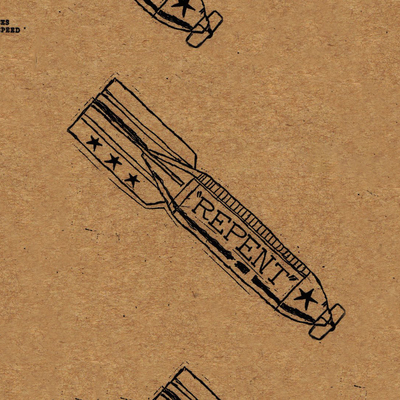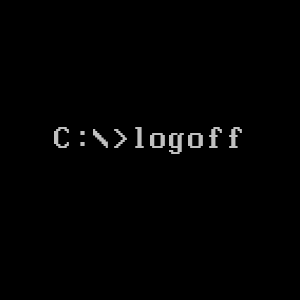Synopsis:
A major argument of the book is that the imprecise, informal, community-building indebtedness of "human economies" is only replaced by mathematically precise, firmly enforced debts through the introduction of violence, usually state-sponsored violence in some form of military or police.
A second major argument of the book is that, contrary to standard accounts of the history of money, debt is probably the oldest means of trade, with cash and barter transactions being later developments.
Debt, the book argues, has typically retained its primacy, with cash and barter usually limited to situations of low trust involving strangers or those not considered credit-worthy. Graeber proposes that the second argument follows from the first; that, in his words, "markets are founded and usually maintained by systematic state violence", though he goes on to show how "in the absence of such violence, they... can even come to be seen as the very basis of freedom and autonomy".
Hello, this part will be 2 weeks long due to my move. Argue, discuss, this is the thread. Remember to join Perusall.
Please refer to the Perusall post for more information but to briefly recap how to join, view and annotate this book:
- Go to Perusall.com
- Create an Account
- Click on Enroll in a Course
- Enter this code: HAYACA-PVMCJ
Can I just say; the dude could fucking write.
The part where he quotes decades worth of economic textbooks (starting with Adam Smith himself lmao) about how the reader should "imagine a land of barter" and then just nonchalantly slams it down: There is no land of barter. There never has been. I was grinning ear to ear; glorious stuff.
I read once that he's incredibly nice to his readers, and I have to agree. One of the reasons I got hooked on his work is he just knows how to make you want to turn the page and keep scratching that intellectual itch.
Yeah, it's nice not having to constantly juggle a dozen French theorists while reading a paragraph. It's still rather dense reading, but very conversational in tone which makes it very approachable no matter where you are in your theoretical journey.
Well put. I find him and Mark Fisher have some interesting overlap in their ideas, but Fisher is much darker and more academic.
I think this book does a better job than almost anything else written over the last twenty years (maybe also David Harvey) of explicating the deep material history of how we have arrived at a current age where millions of dollars of corporate debt melts into air while 30k+ of compounding student loan debt will follow a vast percentage of Americans around for the rest of their lives.
I'm very interested in critique of his historical accuracy. I assume it almost all comes from political scientists and historians and almost none of it from anthropologists. The fact that I struggle to even say what "field" this book belongs to -- mass market socioeconomic history? -- points to both the book's value as well as its disciplinary precarity.
Well there's also anthropologists that disagree with Graeber, but mainly on his ideas about neolithic society or something.
Yes. Graeber really ignores and does not engage with societies that have some form of primitive communism and ignores a lot of the things that make them work or dismisses them outright
Graeber is from a side of the anthropological field that wouldn't find the term "primitive communism" very handy or descriptive, and I think rightly so.
Maybe someone can remind me, but isn't it just because he's focused on the foundation of debt?
Iirc he wrote a long form article about how early societies were Anarchist/communist in structure even after the start of the early neolithic era.
I just don't remember if it's a switch in his thinking or if he just ignores it in debt because it's not the focus of the book.
Edit: Found the article it's mostly them dunking on Rousseau, but he argues there's a variety of both pre-neolithic and early neolithic societal organizations.
The point of that article was not that early societies were anarchist or proto-communist (though some could probably be fit into those Western definitions) but that our entire conception of stages of history is wrong.
Maybe I didn't say that the way I wanted to.
Not that the point of that article was organization of societies, just that in there it is mentioned how societies are organized differently which would be weird that he doesn't note that type of structure in debt.
One of the weird conclusions I got from the first chapters was that in ancient times, sex workers were mostly indebted people forced to work off their or their father's debts. As in, no voluntary sex work. Can anyone confirm or contest this?
There are at least two examples of voluntary sex workers in the Hebrew Bible. Tamar in Genesis and Rahab in Joshua. Granted, the Bible isn’t an impartial document about Iron Age/Bronze Age life. But both women clearly owned their own property based on the stories they were in, though this doesn’t conclusively disprove that they were originally sold by male family into sex work.
I'm not familiar with these stories. Are the two women presented sympathetically or is their sex work used as an excuse to attack them?
not an expert, but they appear to be positive figures. Rahab harbored Israelite spies who were scouting out Jericho, and didn't rat them out to the King when asked.
You should google Tamar and genesis to hear some cool bible stories, she was Onan's wife, and later poses as a "harlot" to fuck his dad and get knocked up..
Rahab is definitely considered righteous, and her descendants are absorbed into the Israelites. Tamar performs trickery, but is essentially good (it’s a strange story).
What would count as voluntary work in ancient times
People have different definitions of coercion. Are wage labourers in capitalism coerced? Someone might say that a person who is server at a restaurant is doing the work without coercion but I'd disagree. That's why I asked what would be considered voluntary
Right, and you're right that'll be a messy definition. I thought you might be implying that there was no non-coercive work.
If you need to work to survive then you’re being coerced into working. So, some people like retirees/trust-fund kids are probably okay. But for everyone else we need communism to be really free.
I mean, without the direct coercion of debt. Maybe it's stupid but I somehow still rank coercion from being a slave as different than coercion of being hungry.
https://www.youtube.com/watch?v=vQtgQ-IciN4&list=PLBqhed9UDNTzRF538_Y33t59opndPqPJf is the audiobook for the first chapter, if you'd prefer to listen. 5 minutes in and I'm digging it.
Started reading this a while ago but it's been going really slow because I've had a shitty few months. Maybe this'll help me finish, though I'm already on the 7th chapter or so.
I found the idea of human economies strangely compelling, it reminded me of my childhood friendships. When some of my buddies and I would go to convenience stores and buy snacks, we'd often lend each other cash or even just pay for each other, but we never formally kept count of who owed what - we just provided for each other and that was that. Granted that's a minor anecdote but it helped make the topic feel very intuitive to me.
yeah exactly my friends and I did the same. when I first came to west tho the entire experience of keeping accurate tabs/paying only for yourself even when you’re with friends was such a culture shock.
Just signed up. It's been a while since we I read Debt, glad to have a refresher. RIP Graeber.
I love that Graeber spends the first 5ish pages talking about how debt needs to be repaid, when circa 2020 we're just forgiving PPP loans like it's nothing.




